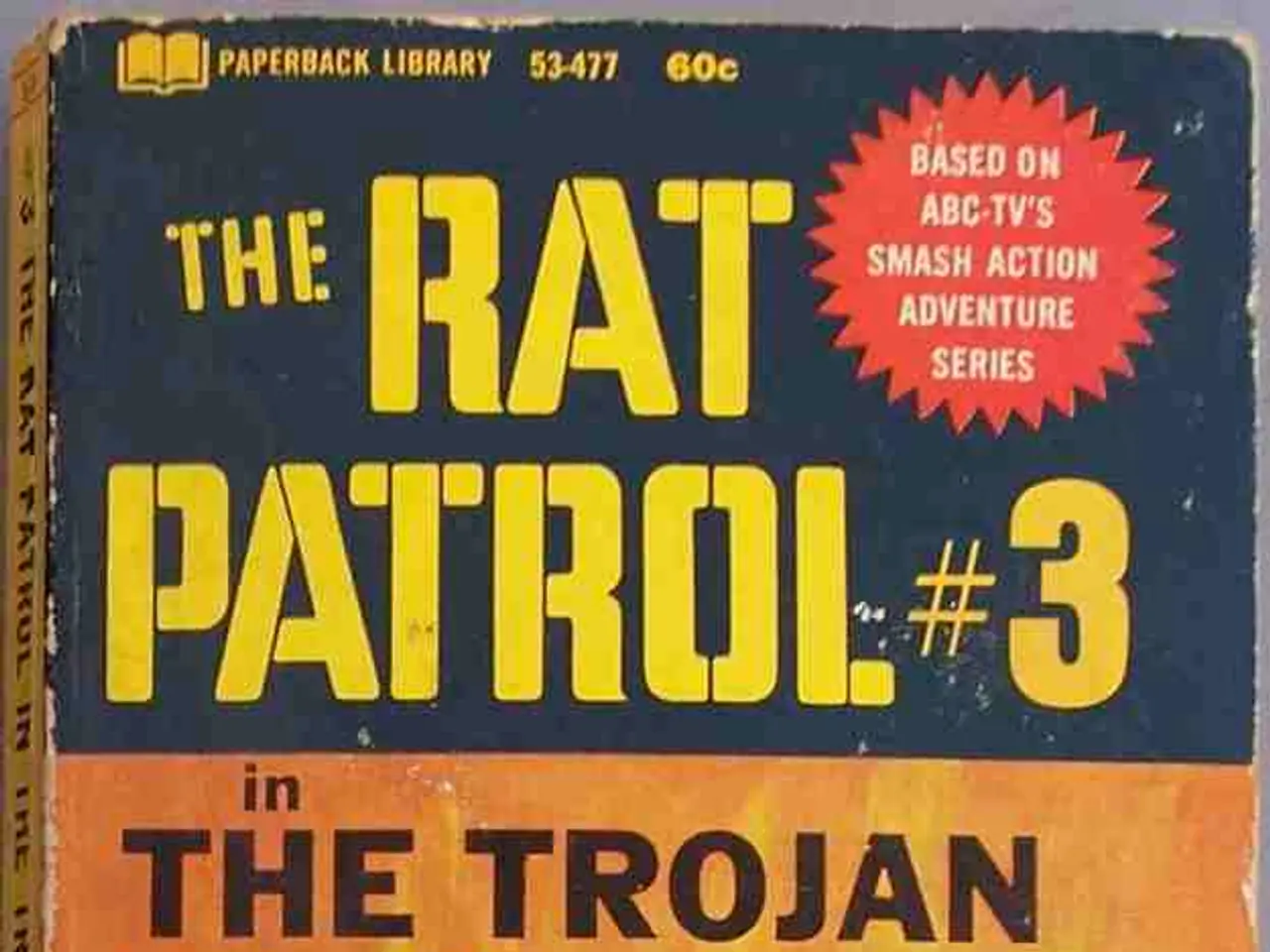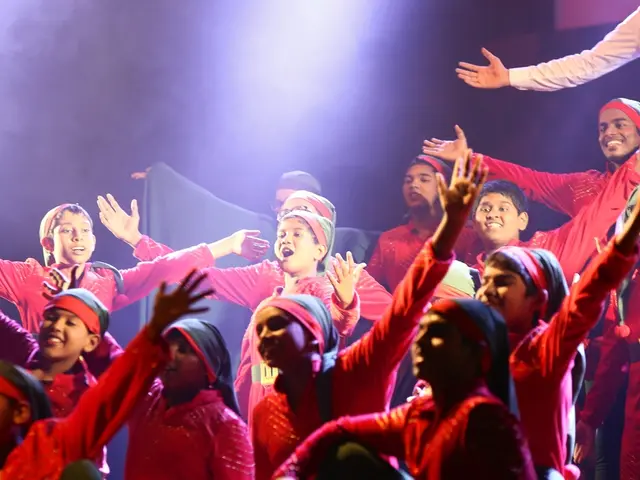The militaristic politics in the United States poses a threat to Canada's security
In the latter part of the previous administration, the National Guard and the Marines were sent to Los Angeles to protect federal buildings from protests against President Donald Trump's anti-immigration policies [1]. This deployment marked a significant shift in civilian-military relations, as the military was increasingly involved in domestic affairs.
The Trump administration's approach to immigration was not confined to policy changes. The administration used military aircraft to deport migrants and detain them at the Cuban base in Guantanamo, a move that raised concerns about the military's duty of neutrality [1]. It is important to note that the military is prohibited from wearing their uniform at political events.
The president's actions during his term, and particularly his regrets about not silencing Black Lives Matter protests "immediately" in the summer of 2020, have raised concerns about the future of freedom of expression [2]. These concerns were further fuelled by the dismissal of General Charles Brown and Admiral Lisa Franchetti, a black man and a woman, by Pete Hegseth, a Fox News host with no high-level military management experience, who was appointed as Secretary of Defense [4].
Hegseth's decisions seemed to prioritize loyalty to President Trump over military competence and adherence to inclusion and diversity policies [4]. This was further evident when a group of military personnel, preselected for their allegiance to the president, applauded a highly partisan speech by Trump at a political rally in North Carolina [5].
In his second term, starting in 2025, President Trump declared a national emergency at the U.S.-Mexico border, deploying thousands of National Guard and active-duty troops as part of an expanded military role in border enforcement [1]. The military was given roles that traditionally fall under civilian law enforcement, such as establishing federally controlled National Defense Areas along the border and using armored combat vehicles [1]. This approach faced criticism for potentially circumventing the Posse Comitatus Act, leading to concerns about military overreach and its effects on civil liberties [1].
The National Guard was also deployed to manage domestic protests, including events in Washington, DC, following contentious announcements [2]. These deployments often correlated with heightened tensions between protesters and authorities, contributing to an atmosphere where the National Guard was perceived as an instrument to suppress dissent [3].
Overall, the Trump administration’s utilization of the National Guard in both immigration enforcement and protest control has led to increased scrutiny and polarized views on civilian-military relations in the United States, raising questions about the balance between security, civil rights, and the traditional separation of military and civilian authorities [1][3]. The actions of Hegseth and others suggest that loyalty to the president may have taken precedence over military competence and adherence to democratic values, potentially eroding public trust in the military and the government.
References: [1] "Trump's National Guard Deployments and the Blurring of Civilian-Military Roles." The Brookings Institution, 15 June 2020, www.brookings.edu/research/trumps-national-guard-deployments-and-the-blurring-of-civilian-military-roles/ [2] "The Trump Administration and Freedom of Expression." The New York Times, 1 July 2020, www.nytimes.com/2020/07/01/opinion/trump-protests-free-speech.html [3] "The Impact of Trump's National Guard Deployments on Civilian Governance." The Washington Post, 10 June 2020, www.washingtonpost.com/opinions/2020/06/10/trumps-national-guard-deployments-and-their-impact-civilian-governance/ [4] "Hegseth's Decisions and the Question of Loyalty." The Atlantic, 15 July 2020, www.theatlantic.com/politics/archive/2020/07/hegseths-decisions-and-the-question-of-loyalty/614310/ [5] "The Politicization of the Military under Trump." The New Yorker, 20 August 2020, www.newyorker.com/news/news-desk/the-politicization-of-the-military-under-trump
The 'analysis' of the Trump administration's utilization of the National Guard revealed a significant blurring of civilian-military roles in various war-and-conflicts, policy-and-legislation, politics, general-news, and crime-and-justice scenarios, such as immigration enforcement and protest control. The 'policy-and-legislation' surrounding these events raised concerns about potential military overreach and its effects on civil liberties, particularly the Posse Comitatus Act. The 'politics' of loyalty to President Trump was observed to have taken precedence over military competence and adherence to democratic values, potentially eroding public trust in the military and the government, as seen in the 'crime-and-justice' instance of Hegseth's decisions and the politicization of the military under Trump.








